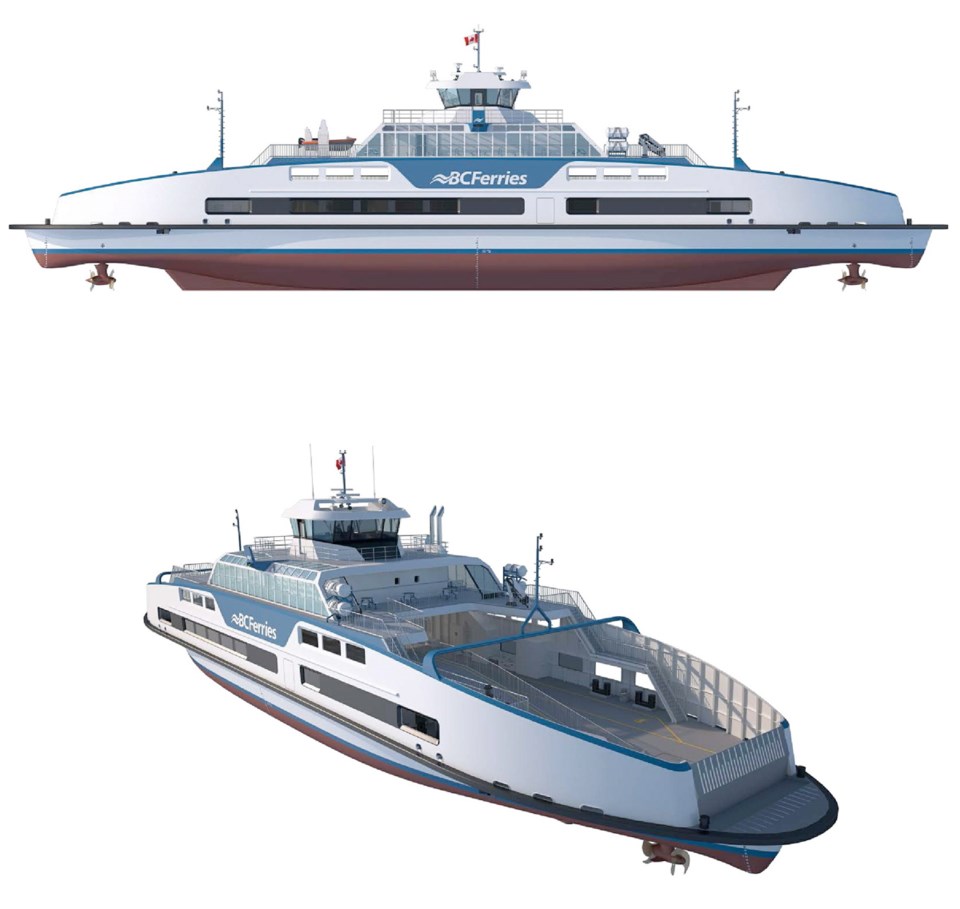B.C. Ferries has announced plans to have up to five new smaller ferries built to serve inter-island routes.
The company is also speaking in favour of B.C. shipyards bidding for the work. “We want to build locally in British Columbia,” Mark Wilson, B.C. Ferries vice-president of strategy and community engagement, said in an interview Wednesday.
“We are doing a tremendous amount of work with local industry. We own the design rights to these existing classes of ships, so the design work will be done. Industry doesn’t have to invest in the design component.”
The procurement process will be open and transparent, he said. “We are doing everything that we can to create the conditions for local industry to bid and submit the best that they can on this.”
Cost is one consideration, along with the end product, the timeline and the amount of risk in a contract, he said.
B.C. Ferries has a diverse fleet and is in the midst of shaving its 17 classes of vessels down to five as it renews its aging fleet.
New inter-island ferries consist of two models.
The 107-metre-long Salish class has room for 600 passengers and crew. Three of these were delivered last year from Poland in a $200-million project.
The new 81-metre-long Island class has room for 300 passengers and crew. B.C. Ferries announced earlier that two will be built in Romania at Damen Shipyards. B.C. Ferries is also in the early stage of plans to replace its five larger C-class ships — such as Queen of Oak Bay — some of which can carry almost 1,500 passengers.
The question of where ferries should be built is long-standing in B.C. Hundreds of millions of dollars in new-ferry construction has gone to Europe. Shipyard workers in this province have lobbied for years for made-in-B.C. ferries.
Premier John Horgan said Wednesday that he wants ferries to be built in B.C. “The benefits to the community of having ship-building jobs in a maritime province are significant and those have diminished over time because of the policy choices of the previous government. And we are looking at what policy changes we can make to revitalize the ship-building industry.”
Horgan said there is a lot of work to do. “We’ll take a look at that over the summer and see what we can do to effect a positive outcome for workers here in B.C.,” he said. “We are looking at all options available to make sure there are community benefits when public monies are expended.”
Wilson said that separate contracts would be let for the Salish class and the smaller Island class. The smaller ferry is “one that I think, if local industry is serious about building in British Columbia, it is one that they can get behind.”
The number of smaller vessels that will be ordered is expected to be set in the next two weeks.
This construction would replace three Victoria-built 85-metre-long ferries: Mayne Queen, Bowen Queen and Powell River Queen, all 53 years old.
— With a file from Katie DeRosa



